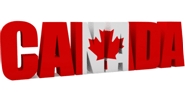Canada

July 2, 2019
Canada Amends Safeguard Rules
Written by Sandy Williams
The Canadian Parliament passed an act on June 21 that will amend the Customers Tariff and the Canadian International Trade Tribunal Act regarding safeguard measures. The House of Commons and Senates pushed through an amendment that temporarily repeals a two-year waiting period before government authorities can reinstate safeguard measures on the same products.
Canada recently removed safeguards on several steel products, but Bill C-101 will allow the initiation of new measures should a surge of imports occur. The bill, however, is inconsistent with Canada’s obligations with the World Trade Organization and will automatically revert to the original provisions after two years. If it becomes necessary to use the new provisions, there is a possibility of a challenge in the WTO.
The rule change follows the lifting of Section 232 tariffs by the United States and discussions between Prime Minister Justin Trudeau and President Donald Trump. Trump implied last week that reinstatement of the tariffs on Canada or Mexico was possible if steel imports surge.
“We can’t have tremendous shipment of certain products,” said Trump in response to a question by CBC News, adding “there won’t be hopefully transshipping.”
“If there’s transshipping, I’ll call Justin and he’ll take care of it. And if he doesn’t, I’ll probably call him a second time. And if he doesn’t, we’ll have to talk,” he said, looking at Trudeau.
“We’ll be fine,” Prime Minister Trudeau replied.
“I think the situation is very well taken care of,” Trump concluded.
The short exchange above illustrates the fear of Canadians that tariffs could return at the president’s discretion and personal interpretation of an “import surge.”
John Layton, executive director for trade remedies and North America trade at Global Affairs Canada, downplayed suggestions that the Trump administration influenced the decision to amend the safeguard rules.
“We never had discussions with the United States about specific concerns they have with transshipments, nor did the U.S. ever ask us to impose measures to address transshipment,” said Layton.
Catherine Cobden, president of the Canadian Steel Producers Association, said in hearings before the Canadian Standing Committee on Finance that recent trade actions around the world have “significantly exposed” the Canadian market to “high volumes and low-priced steel” putting it at “grave risk.”
Said Cobden,” The committee will be aware that safeguards stabilize the domestic marketplace and prevent surges of foreign imports. As we sit here today, the OECD estimates an overcapacity of around 540 million tonnes of steel. This is about 36 times the entire size of the Canadian market—36 times of overcapacity looking for a home. This is not fiction or fake news. This is the reality we face. We feel we need to have the tools—at your disposal—for implementation as soon as possible.”
“Our recent Section 232 understanding between Canada and the U.S., which we’re immensely grateful for, demonstrates the need for action and highlights that we see the world the same way as the U.S.—namely, that steel global overcapacity is a real and demonstrable threat, and we must take steps to prevent surge and transshipment. While the U.S. Section 232 tariffs were lifted on Canada, globally Section 232 tariffs remain in place. There’s a risk of millions of tonnes of offshore imports being diverted into our country. That risk continues to grow. By removing the waiting period, which is the intent of this legislation, this tool will be available to basically address this rapidly evolving circumstance.”
The current trade practices are “unprecedented,” said Cobden, warranting an expansion of the trade toolbox.
“The U.S. is watching our every move,” she added. “We have to demonstrate that we have the tools and we will use them.”






